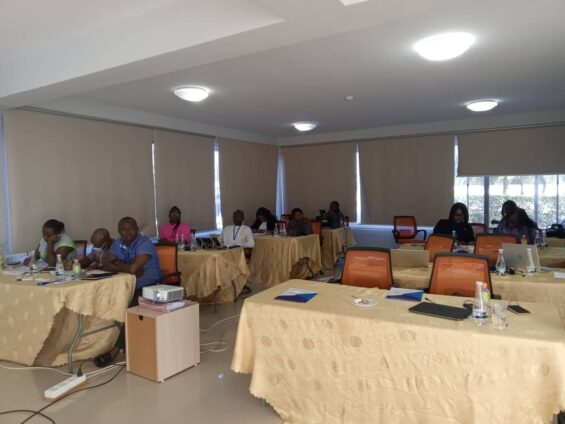A three-day journalism fellowship has kicked off in Accra, empowering journalists to effectively utilise mass and social media to advocate for enhanced financing of epidemic preparedness through improved reporting on public health emergency financing.
The fellowship seeks to enhance public understanding of public health emergency financing through accurate and in-depth media reporting in Ghana.
The fellowship organized by SEND Ghana with funding from the Global Health Advocacy Incubator (GHAI) seeks to equip 12 selected journalists to advocate better financing for epidemic preparedness and response and raise public awareness.
SEND Ghana's Country Director, Harriet Nuamah Agyemang emphasizes the importance of empowering journalists through capacity-building initiatives, recognizing their pivotal role in shaping policies and driving positive change.
By bringing journalists together, SEND Ghana aims to sensitize them to critical issues and enhance their skills, ultimately leveraging their influence to inform and transform policy decisions.
Experts say journalists can effectively promote national interests and support development when guided by objectivity, accuracy, and neutrality.
CHAI's In-Country Coordinator, Stephen Atasige, states the significance of the fellowship, stating that journalists play a vital role in shaping the narrative through their storytelling and article writing
“Journalists keep the momentum. We can’t continue to do business as usual we need to be deliberate,” he said.
Public health emergency financing refers to the financial resources and systems dedicated to preparing for, responding to, and recovering from public health crises, such as infectious disease outbreaks, natural disasters like floods, droughts, biomedical threats among others.
Key aspects of public health emergency financing in Ghana include funding sources, resource allocation, health infrastructure, surveillance and detection, community engagement, research and development.
To address these challenges, Ghana needs sustainable, transparent, and equitable public health emergency financing mechanisms.
Medical practitioner, Dr. Konadu Asiedu says health financing goes beyond infrastructure or workforce. To ensure sustainable healthcare financing, he said, Ghana should aim to meet the Abuja Declaration target of allocating 15% of its annual budget to the health sector.
“This could reduce reliance on donor funding and enhance service delivery.”
Latest Stories
-
Mohammed Salisu scores in Monaco defeat to Reims
20 minutes -
Nora Hauptle’s exit will affect Black Queens at WAFCON – Osei Kwaku Palmer
25 minutes -
Mahama recalls diplomatic passports issued by previous gov’t for verification
27 minutes -
Fuel prices projected to increase by Friday, Jan. 17 due to cedi depreciation, rising global crude prices
28 minutes -
WAPCo postpones maintenance exercise to avert looming dumsor
44 minutes -
Sacking Otto Addo is the only response to poor Black Stars performances – Osei Palmer
1 hour -
Investigators scale barricades to arrest S Korea’s impeached president
2 hours -
Reece James late free kick cancels out Semenyo stunner
2 hours -
IPPG calls on Mahama to retain and reset the Emissions Levy
3 hours -
Resetting the Ghanaian Economy: What to focus on
3 hours -
Mahama’s visit to Bawku is critical for lasting peace – National Peace Council
4 hours -
Scores injured in Walewale as soldiers are accused of brutal assault
4 hours -
Mahama meets Mamprugu king over Bawku chieftaincy stalemate
5 hours -
Mahama calls for robust investment to uplift vulnerable populations
5 hours -
Social media hate speeches harming peace efforts in Bawku – Peace Council
5 hours

